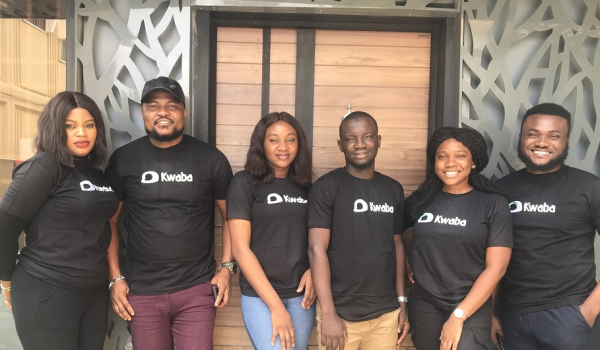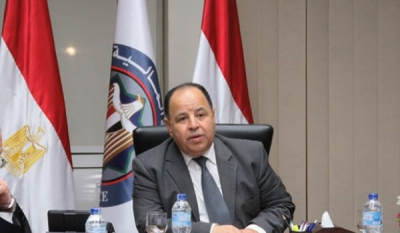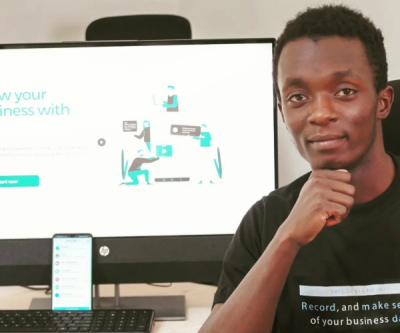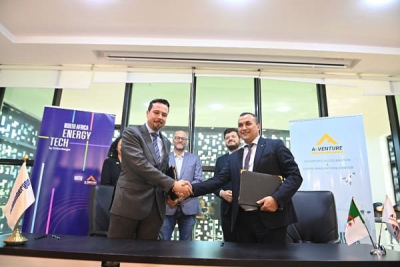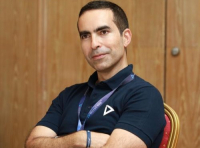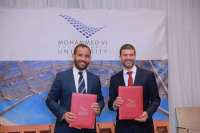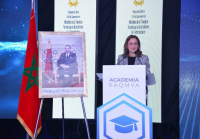In Africa, access to traditional bank loans is hard and stringent. Residents are thus obliged to turn to alternative solutions to meet their needs.
Kwaba is a Nigeiran startup founded in 2019 by Obinna Molokwu. Through its eponymous android app -the iOS app is still under development- the startup facilitates rent payment and real estate investments.
“Kwaba is helping to bridge the gap between property and finance. We understand the economic reality of Nigerian renters and have built our product to reflect this. We aim to improve the financial well-being of renters as we grow,” explains Molukwu.
With Kwaba, users can save or receive instant loans for real estate projects. They can also conveniently pay their rent or when they are unable to pay security deposits, they can receive up to 40% of their rent savings and pay in monthly installments.
The startup claimed to have received NGN115 billion (close to US$277 million) of rent payment requests from its over 30,000 users in 2021. A year earlier, the startup was selected for the second edition of ARM Labs accelerator program, entitling it to US$20,000 funding.
Adoni Conrad Quenum
In Nigeria, only 7 million out of the estimated 200 million population is subscribed to a health insurance policy. Of the 7 million, 98% were enrolled by their employees. A local startup wants to change that situation by leveraging technology.
In 2019, Nigerian tech entrepreneur Kayode Odeyinde founded NucleusIS, a startup that wants to leverage technology for universal healthcare in Nigeria. Through its eponymous digital platform, the startup allows individuals and firms to subscribe to health insurance policies.
It offers users access to hundreds of subscription plans created by dozens of insurance firms. The information to be provided for registration and subscription depends on the user’s insured and employment status as well as location.
Recently, NucleusIs introduced a plan allowing users to buy health insurance on credit. “NucleusIS will continue to look for ways to use technology and financial initiatives to drive health insurance adoption across the continent. (...) The platform is one of the many initiatives the company will be rolling out to make health insurance truly accessible and affordable to the average person,” indicated its head of Communication Godwin Awuya.
The startup currently claims more than 200,00 health insurance policies sold and 600 corporate clients managed. “We want to provide about 180,000 touchpoints across the country and add over 20 million people to the insurance net annually,” explained Odeyinde in 2021. The startup is already active in Nigeria and Ghana but it plans to enter new African markets in the next three years.
Adoni Conrad Quenum
The modernization of public administration is one of the key focuses of Egypt’s 2030 development strategy. To achieve the desired goals, the country is relying on digitization.
Egypt will extend the use of the automated payroll management system to the whole public sector by late 2022, according to Finance Minister Mohamed Maait (photo).
The information was revealed, Tuesday (May 10), when the Ministry of Finance was announcing the acceleration of the process. For Deputy Minister of Finance Mohamed Abdel Fattah, the system has already been successfully tested in 283 government agencies, including 64 in the new administrative capital, 205 in local communities, and 14 government bodies.
Minister Mohamed Maait explains that the automated system will guarantee accuracy in the calculation of civil servants’ salaries. It will also provide accurate research data for all salary-related decisions.
The automated system is the result of instructions given by President Abdel Fattah Al-Sissi in line with Egypt 2030, the country’s development strategy which focuses on the use of information technology to improve governance, enhance the efficiency of public services and boost economic growth.
Some 1,189 civil servants have already been trained on the use of the automated system. Also, the Ministry of Finance, which offers its technical assistance, plans an awareness campaign in collaboration with its partner eFinance.
Ruben Tchounyabe
The number of e-commerce businesses operating in Africa is growing daily. The ecosystem has become so competitive, threatening the survival of a large number of those businesses. In Kenya, a startup wants to use artificial intelligence and big data to help businesses avoid stories that touch.
Lisa is a business assistant launched in January 2022 by Kenyan startup Phindor. By combining artificial intelligence and big data, it analyzes commercial data and network firms, service providers, and clients via its web/mobile platforms.
Lisa, the startup founded in 2018 by Pheneas Munene (photo), anticipates shifts in demand and market trends by collecting online and offline market data, analyzing clients’ feedback, and organizing surveys. The business assistant also does so many things like forecasting business performance and recommending market segments to explore.
“It is usually a “wow” moment when we walk into someone’s shop and explain to them what the app can do. Surprisingly for us, we found out that most of the users had ideas of such a product but have never had a solution that fits all these needs in such a way they would adopt it. We have had challenges explaining the app to the least tech-savvy, but overall, the adoption has been smooth,” Pheneas said.
Phindor started as a website allowing users to compare the price of school items. However, in 2018, its founder decided to offer data management and analytics services. “We decided to work towards creating a simple, lightweight, and affordable app to help businesses capture data, keep it and use AI to draw insights from this data, just like giant companies are doing,” Pheneas Munene told Disrupt Africa.
Thanks to Lisa, Phindor enables businesses “to apply the power of AI to make sense of this data by helping them segment customers in their markets, generate smart supply chain networks, analyze their markets and predict the future performance of their businesses, as well as track sale items over time to enable them to make proper purchase decisions,” he added.
To access its services, users just have to chat with a dedicated chatbot or converse with the startup’s voice assistant. Once registered, users pay a flat US5 monthly fee plus a percentage of their monthly sales.
According to Phindor, 500 users are already registered on Lisa. Its ambition is to expand into Rwanda, Nigeria, and Ghana but for that, it needs more funds. So, the startup hopes it will complete a funding round to raise US$100,000.
Adoni Conrad Quenum
Mohamed Ali launched a food tech to reduce the prevalence of obesity and promote healthy food and dietary habits. Initially, his startup was operating in Egypt but with the funds he raised recently, the entrepreneur intends to expand operations into the MENA region.
Mohamed Ali (photo) is an Egyptian entrepreneur and founder of 3attar.com, a foodtech promoting healthy shopping. Founded in 2018, the startup offers food and dietary items, delivery services, and dietary counseling via its website, and mobile apps.
It was launched to improve the population’s health and reduce obesity prevalence, which has been rising in Egypt since 2017. Its ambition is to become the choice destination for athletes, fitness professionals, sick people, and even individuals who need quality and healthy food items adapted to their individual needs and lifestyle.
“We aim to become the dominant one-stop-shop for the whole health community in Egypt and expand into Mena regions; including chronic diseases and obesity by providing a holistic healthy lifestyle app,” the founder explains.
The latter spent his whole professional career in the e-commerce industry. In 2010, some months after securing a BSc in Accounting, Mohamed Ali joined Edfa3ly, a platform that allows users to buy goods from the U.S. and get them delivered to Egypt. He launched 3attar.com after leaving Edfa3ly.
In January 2022, he secured seed investment from AUC Angels, UI Investment & individual Angel Investors to expand the startup’s client base and upgrade its infrastructure for “higher-order volume and revenues.”
Melchior Koba
With the open innovation framework, Algerian authorities want to boost the number of cleantech operating in the country, address various challenges and ultimately export local expertise.
Algeria Venture (A-Venture) and Schlumberger signed Wednesday (May 1) an open innovation framework for technical support to Algerian energy startups.
Speaking during the signing ceremony, the Minister of Startups Yacine El-Mahdi Oualid explained that the innovation framework would encourage more startups to enter the energy sector, which is vital for the national economy. It will also increase the number of projects and cleantech developed in the sector while helping address the energy transition challenges facing Algeria.
Ultimately, thanks to the innovation framework, Algerian energy startups will be able to export their expertise in the North African sub-region and beyond.
Under the open innovation framework, “international, private, state and parastatal groups will collaborate and help startups and project owners address Algeria’s future challenges in sectors like digital transformation and energy transition,” indicated Redha Kelkouli (photo, left), MD of Schlumberger North Africa.
Startups play a key role in the improvement of access to various vital services. In Africa where businesses and households are still affected by the energy deficit, startups can offer alternative solutions. For that reason, the volume of investments they attract yearly is growing steadily. In its report “2021 Africa Tech Venture Capital,” Partech estimated the volume of investments attracted by cleantech in 2021 at US$193 million, up by 30% year on year.
Ruben Tchounyabe
Since 1996, Algerian authorities are stepping up efforts to protect their cultural heritage against vandalism, theft, concealment, and trafficking. The digital platform is one of the actions that will further protect the country’s cultural properties.
Algerian Minister of Culture Soraya Mouloudji launched Monday (May 9), Turathi.dz, a digital platform for the fight against illicit trafficking of cultural properties. Developed in collaboration with the US embassy, the platform will be the new tool to protect the country’s cultural assets.
For Ms. Soraya Mouloudji, the platform is a digital photo guide with detailed information on Algeria’s cultural properties most exposed to contraband and illicit trafficking. The properties listed on Turathi.dz include prehistoric items, sculpture, figurines, manuscripts, and funerary arts.
Despite the measures taken since 1996 to protect cultural assets, more than 35,752 items have been stolen, according to Algerian authorities. To enhance protection, the Ministry of Culture stepped up actions and even created a joint action plan to protect the cultural heritage from any type of damage. In 2019, the country signed a memorandum of understanding with the USA to limit or stop the export of archeological objects per the UNESCO 1970 convention.
In addition to protecting the cultural heritage, Turathi.dz can also be used as an educational tool since it lists and describes Algeria’s numerous cultural properties. Students and even researchers can use it for academic purposes.
Adoni Conrad Quenum
In just seven years, Karim Beguir has transformed InstaDeep into an international AI reference. With the support of renowned investors and partners, he wants to enter new markets and sectors.
Karim Beguir (photo) is a Tunisian entrepreneur and Google Developer Expert in Machine Learning. With his high school friend Zohra Slim, he founded InstaDeep, an artificial intelligence startup that develops smart solutions to facilitate decision-making.
Within seven years, the startup founded in 2014 has gone intercontinental with offices in Paris, Tunis, Lagos, Dubai, London, Cape Town, and the USA recently. To upgrade its infrastructure and attract new talents, it raised US$100 million in a Series B round led by Alpha Intelligence Capital and CBIB. Participating investors included Google, Deutsche Bahn, and BioNTech.
For Karim Beguir, InstaDeep aimed to show that Tunisians can create cutting-edge artificial intelligence technologies and conquer the African AI market. The co-founder is a science graduate. In 2003, he graduated from the French academic institution École Polytechnique with an Engineering diploma in applied mathematics and economy. In 2003, he graduated from New York University with an MSc in Applied Mathematics and Finance. With InstaDepp, he bagged several recognitions, was invited to international AI conferences, and collaborated with well-known firms. In 2017, InstaDeep was named one of the 20 Intriguing Global Startups to Watch by PCMag. The same year, it signed a partnership with Intel’s AI Builders and became an NVIDIA inception member.
About two years later, the startup published a joint research paper with Google’s DeppMind. In 2020, Karim Beguir announced a strategic collaboration with biotechnology company BioNTech and the creation of an AI innovation lab for the development of Novel Immunotherapies.
For two years, 2020 and 2021, InstaDeep was in CBInsights’ AI100 ranking, which showcases the world's most innovative AI companies. Last year, it became an NVIDIA Elite Service Delivery Partner.
Melchior Koba
In Africa, digital transformation is on the rise but so are cybersecurity threats. However, the continent does not have enough cybersecurity professionals to face the threats. Various partners are moving to bridge the skill gap.
Mohammed VI Polytechnic University (UM6P) and Deloitte Morocco Cyber Center (Deloitte MCC) signed Monday (May 9), a cooperation framework agreement to promote high-level scientific and technological research in cybersecurity.
The partnership was announced in a release published the same day on UM6P’s website. According to the release, the aim is to build cybersecurity talents and create new solutions. To do so, the three pillars will be prioritized. The first pillar is the development of a certification program recognized by international cybersecurity standards bodies. The second is the creation of a research and development program aimed at encouraging innovation and preparing for major changes (post-quantum cryptography, artificial intelligence, etc). The last one is the development of a professional integration pathway at Deloitte MCC and Deloitte as a whole.
“I am confident that our partnership with our colleagues at Deloitte MCC will contribute significantly to sealing the link between research and the professional world in Morocco and Africa,” said Hicham El Habti (photo, right), President of the UM6P. According to the latter, UM6P’s digital adoption has led to positive outcomes. For instance, the university’s startup ecosystem is growing steadily while its computer science, cybersecurity, and artificial intelligence academic programs are renowned nationwide. However, students need to apply their knowledge in the professional world. The partnership with Deloitte MCC will facilitate that transition.
“This new ambitious partnership allows the construction of a bridge between the academic world and the business world, thanks to the support of public institutions and the State. We believe that this is the only way to create ecosystems that can train and retain high-level talent while fostering the emergence of new business models that are attractive to start-ups, scale-ups, and specialized investment funds,” commented Imane Elbaraka (photo, left), Managing Director of Deloitte MCC.
Ruben Tchounyabe
With the acceleration of digital transformation in Africa, the continent will need more human resources with adequate digital skills. With Academia Raqmya, Morocco intends to develop those skills.
Morocco’s Digital Development Agency (ADD) launched, Tuesday (May 10), the country’s e-learning platform, Academia Raqmya. By launching the platform, Morocco wants to boost digital skills and e-learning.
For Minister of Digital Transition Ghita Mezzour (photo), who presided over the launching ceremony, Academia Raqmya is a key step in the operationalization of the country’s digital transition. It is “in line with instructions given by Mohammed VI for human capital development,” she added.
Academia Raqmya is launched in a context marked by accelerating digital transformation in most African countries. As a strategic sector for socio-economic development, training is one of the areas prioritized. Through the platform, Morocco will offer a range of digital courses allowing learners to acquire new skills and actively participate in the development of the digital economy. With the platform, Morocco also wants to boost digital inclusion.
To introduce learners to the digital world, the platform offers two programs, namely “digital enhancement,” and “digital literacy.”
The platform aims to teach 12,500 learners in its first year with 173 courses that make up a total of 1,200 training hours. In its first three months (the pilot phase), it will train 1,350 learners and in the active phase (fourth to twelve months), it will train 11,150 learners to reach its target.
Ruben Tchounyabe
More...
According to the GSMA’s Mobile Economy 2021, 40% of Sub-Saharan Africa’s population will be connected to the internet by 2025. To allow brands and communication agencies to reach that growing client base and let social media users earn money by facilitating that outreach, Wowzi is developing mobile solutions.
Wowzi is a Kenyan startup that connects social media users with advertising agencies and brands. The startup was co-founded, in 2019, by Mike Otieno, Hassan Bashir, and Brian Mogeni.
Via its mobile app -available on PlayStore only- it helps content creators earn money by publishing brand messages on their pages and accounts. The startup focuses on pages and accounts with less than 10,000 followers on Facebook, Twitter, Instagram, and TikTok for authentic engagement. Unlike influencers with tens or hundreds of thousands of followers, those accounts and pages have better trust relationships with the followers, which translates to better engagement.
“Brands want to have more authentic engagements or endorsements for products, from people who use and love them and can talk about real practical applications. Our campaigns show that nano influencers deliver better sales leads because of the higher trust with their following,” explains Johnny Falla, chief development and growth officer at Wowzi.
“We offer a really comprehensive reporting dashboard online. So, brands can check in to see exactly what happened, what posts were made by the influencers, which ones performed the best, and analytics of the demographics for people who were actually reached,” he adds.
To earn money with Wowzi, social media users need to register and provide detailed information that will allow the startup to assess eligibility. As for brands and advertising agencies, they must create an account, set up advertising campaigns, select the social media users they want to work with, brief the selected users, and monitor performances through the dedicated dashboard.
Wowzi currently claims more than 50,000 registered nano-influencers, 150 clients (advertising agencies and brands), and 15,000 campaigns already launched. Its services have already been used by renowned groups like Netflix, Coca-Cola, and Nestlé. It is already present in eight African countries but, it plans to expand further, in Nigeria, Ghana, and South Africa notably. For that purpose, in late December 2021, it secured US$3.2 million to fund its expansion plan and upgrade infrastructure.
Adoni Conrad Quenum
With over ten years of professional experience in the accounting sector, Babatunde Akin-Moses knows quite well the challenges faced by SMEs in their search for bank loans. Sycamore was launched to address some of those challenges.
Babatunde Akin-Moses (photo) is a Nigerian entrepreneur and co-founder of risk assessment startup Sycamore.ng.
Co-founded in 2019 with Onyinye Okonji and Mayowa Adeosin, the startup allows access to quick and collateral-free personal loans via its web and mobile platform available on PlayStore and AppStore. Through the web and mobile app, users can also lend to friends and families and automatically collect their dues at specified amortization dates.
Sycamore was launched to allow SMEs access to credit since they are usually unable to borrow from banks due to stringent conditions.
“...If you are in other countries, once you have a job, you can easily get a mortgage. But here in Nigeria, even if you are working, you need to be working for an upstream oil and gas firm or basically earning a lot of money before you can access a significant credit facility without having to present a landed property as collateral. You can see how that’s a major problem in a country where there are 100 million poor people,” explains co-founder and CEO Babatunde Akin-Moses.
As the CEO of Sycamore.ng, Babatunde Akin-Moses completed a seed-funding round whose amount was not disclosed. With the proceeds, the startup will build awareness in the Nigerian market where it is the only startup in the peer-to-peer lending segment. It will also invest in financial education, boost its human resources and expand to other African countries.
The co-founder holds an MBA from the Lagos Business School. His professional career started in 2010 with a business analyst position at Shell Nigeria. One year later, he joined KPMG as a tax analyst. In 2014, he was hired by PwC as a tax consultant and then as a Tax academy deputy. After five years with PwC, he was recruited by Pezesha as a finance and strategy manager. He left four months later to co-found Sycamore. He is also a member of the board of Profiliant Development Resources, a B2B sales, and marketing consultancy firm.
Melchior Koba
The coronavirus crisis accelerated digital transformation projects across Africa. Morocco, which is already a leader in digital governance is also following the trend with projects and initiatives to improve services offered to users.
Moroccan Pension Fund CMR is moving to improve its services and transparency with digital transformation. In that regard, last May 5, the pension fund signed a framework agreement with the Digital Development Agency (ADD), which will assist in the endeavor.
According to an official release, the signing ceremony was co-chaired by Finance Minister Nadia Fettah Alaoui (photo, right) and Ms. Ghita Mezzour (photo, left), Minister of Digital Transition.
With the framework agreement, ADD and the CMR want to cooperate for a successful digital transformation by implementing common advanced tech projects, interoperability, digital training, and the development of e-inclusion, the release indicates.
"The partnership confirms the two parties’ commitment to leveraging tech innovation for the improvement of services provided to citizens,” it continued.
ADD is a government agency launched in 2017 to implement the national digital transformation strategy as well as promote and vulgarize digital tools. In 2020, the United Nations Department of Economic and Social Affairs ranked Morroco as the seventh leading African country in terms of digital governance.
Adoni Conrad Quenum
When the AfCFTA became effective in January 2021, it boosted the business opportunities available for actors. Yet, some players are still left out because they have poor or no access to market information. Ancestral House Eastern Africa wants to address that issue.
Online trading platform Ancestral House Eastern Africa recently launched its activities to facilitate intra-African trades. With offices in Abuja, Nigeria, and Nairobi, Kenya, the platform acts like a facilitator offering administrative, technical, logistics, and commercial assistance.
According to Ancestral chairman Ose Imoukhuede (photo), although most African SMEs can easily export or import goods from other continents it is hard for them to carry out intra-African trades despite the yearly US$1 billion potential of the market.
Ancestral House Eastern Africa, therefore, wants to make intra-African trades easy for those firms by addressing a certain number of challenges. The said challenges are namely “lack of market information, inexperienced exporters/importers, poor logistics infrastructure, inefficient cross-border payment systems/infrastructure, cultural differences, gaps, and trust deficit, as well as varied Competitive landscapes.”
For the time being, the online trading platform will connect East and West African traders with services like business matchmaking, market research, logistics, consumer trends, and behaviors.
Ancestral connects “producers and consumers of goods and services across Africa through technology-driven go-to-market information and expertise,” explains chairman Ose Imoukhuede.
In January 2021, the African Continental Free Trade Area (AfCFTA) became effective in a market of 1.2 billion people covering 55 countries with combined GDP estimated to be some US$2.5 trillion. In those countries, SMEs represent 80% of the economic fabric but they are still struggling to penetrate overseas markets. With Ancestral’s trading platform, they can capitalize on regional markets to reach buyers outside the continent.
Ruben Tchounyabe


